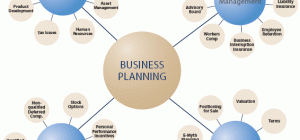 In recent years, many claims have been made about the ways in which ERP (Enterprise Resource Planning) can improve business efficiency and lead to greater business profitability. But how does ERP achieve these increases in efficiency, and how does this translate into a benefit for a small or medium-size enterprise?
In recent years, many claims have been made about the ways in which ERP (Enterprise Resource Planning) can improve business efficiency and lead to greater business profitability. But how does ERP achieve these increases in efficiency, and how does this translate into a benefit for a small or medium-size enterprise?
A definition of ERP
ERP can be roughly defined as a system of integrating and managing data processing capabilities within a business. This can be of greater benefit than it may first appear. The key to the success of ERP in achieving its claims is the way in which it eliminates the need for different departments and different employees to keep their own business data secure and up-to-date on scattered hard disks and devices across the enterprise. Instead, data is managed from a central location, or in the cloud, where it is accessed and updated according to need by anyone in the company. What is more, software and applications can also be shared in the same way. This means that another definition of ERP would be a system of enabling employees to share data applications seamlessly and in real time.
Here is a very interesting video defining the main concepts of Enterprise Resource Planning. Watch it for further reference.
[youtube https://www.youtube.com/watch?v=PVRgIXLWDHs]
How ERP improves employee productivity
The advantage in terms of individual employees is therefore quite obvious, in light of the central computing power and the real-time data management. Whereas previously, an employee or a department may have spent considerable time backing up their own data, submitting it in different forms to different parts of the organization, and maintaining the software to manage the data, all of this can now be done by simply entering the new or updated data into one central system. ERP can also be used to automate a lot of repetitive manual tasks associated with the data that employees may have had to do manually in the past. Through such a series of small cuts in time usage during the working day, a large overall amount of time can be saved for each employee. This opens up schedules for work on other tasks, and hence boosts productivity.
The advantage for an enterprise can be even more pronounced when considering cloud computing capability and online ERP. With the central database being stored remotely in an invisible way in the cloud, time that was previously devoted to data synchronization, software management, and tracing faults and inaccuracies becomes available for more productive tasks, thus reducing costs.
How business benefits when all employees use ERP
The most complete improvement in productivity comes when each employee in the organization has access to the ERP system. When this is set up, every member of staff who needs to alter data or run applications based on the data can do so at any point with reliably up-to-date figures. Stock control, invoicing, and customer services are among those areas that need precise and trustworthy data to perform key tasks. With ERP, these tasks can be done without waiting lengthy periods for updates to be downloaded from elsewhere in the company. The data is ready and waiting, so that the overall capacity for productivity in the company is increased, and time can be spent on operating the business.
Watch this video for more information on how businesses can benefit from Enterprise Resource Planning software as explained by Microsoft.
[youtube https://www.youtube.com/watch?v=a_R-WCmBcRY]




![Awesome Things You Need in Your Office [According to Officeprinciples.com]](https://lerablog.org/wp-content/plugins/wp-thumbie/timthumb.php?src=http://lerablog.org/wp-content/uploads/2014/10/image1-300x199.jpeg&w=300&h=140&zc=1)


